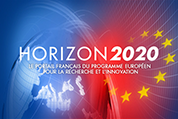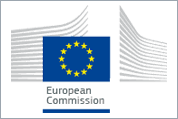WP2 - Wave propagation and imaging experiments [Months: 1-48]
Objectives:
- Experimentally verify data-driven focusing techniques by creating physical virtual sources. Research advanced directional physical sources and their applications (e.g. to modify boundary conditions). Study effect of limitations (e.g. complexity, attenuation) on focusing properties.
- Realize full acoustic(-elastic) time-reversal and demonstrate exact “inverse scattering” and the absence of spurious reverberations. Research and develop data-driven time-reversal taking advantage of recent progress on data-driven focusing.
- Experimental verification of recently proposed source-separation techniques for cloaking and noise-cancellation. Exploit data-driven focusing and exact boundary conditions to enable elastic experimentation in tanks. Experiment with cloaking/meta-materials using 3D printed models.
- Physical modelling of wave-borehole interactions using 3D printed models. Investigation of detectability and potential for imaging of borehole-reflected waves by e.g. non-aliased recording, prismatic imaging technology. Develop theoretical model and research potential applications.
- Develop methods for real-time coda-wave interferometry for bulk property estimation and empirical Green’s function based event detection. Apply methods to model and predict fracturing events in real-time. Assess models using objective lab-enabled real-future predictions.
Description of work:
The WaveLab at ETH consists of a closed tank whose walls are all covered with transducers. A physical experiment inside the tank and a numerical simulation in virtual space outside the tank drive each other through the transducer array. This allows wave propagation to be simulated in targets of any size, including sub-wavelength scale; perfect time reversal can be implemented, as well as recently proposed data-driven focusing methods and their specific applications in wave field redatuming and imaging/inversion. WP2 will coordinate research projects across WAVES that will include experiments conducted in this unique setup. This effort will benefit from the know-how acquired over the years by partners at CNRS (LMA, ISTERRE), INSERM, ESPCI (the Institut Langevin), who have advanced physical acoustics and its medical, seismological, oceanographic applications for some time; and by the geotechnology lab at TU Delft, with its extensive experience on ultrasonic and EM experimentation under changing conditions. Experimental work related to WAVES will be conducted at those institutions as well. Another original, laboratory-driven contribution to WP2 comes from the RFPC laboratory being built at UEDIN; this unique rock physics lab is designed to evaluate how well the dynamically-changing rate of micro-fracturing, and the time of ultimate failure of a rock sample can be predicted based on micro-fracturing precursors and interferometric interrogation. The lab is coupled to a ‘hands-off’ real-time model-testing environment; this stores a variety of rock physics models and automatically makes and records real-future predictions of rock properties, failure statistics and rates/timings. It tests the predictions using the real-future data as it arrives, updating and recording the future model predictions constantly. With no retrospective data-selection bias possible, completely unbiased inter-model comparisons can thus be made of dynamic models in true prediction rather than data-fitting mode.
In this section
Key Facts
- Coordinated by Université Pierre et Marie Curie
- 15 participating partners
- 6 European countries and the USA
- 15 trained fellows
- Project budget: 3 227 952.96€
- Project duration: 4 years
- WAVES is a European project funded by the European Union’s Horizon 2020 research and innovation programme under the Marie Slodowska-Curie grant agreement n° 641943.
Contact
Coordinator:
Lapo Boschi (lapo.boschi @ upmc.fr)
Project Manager
Fanny Schultz (fanny.schultz @ sorbonne-universite.fr)



